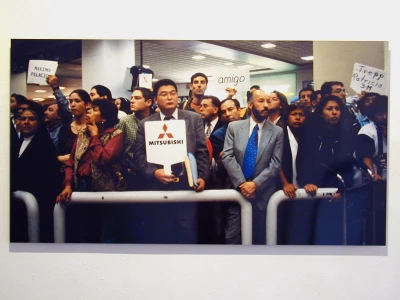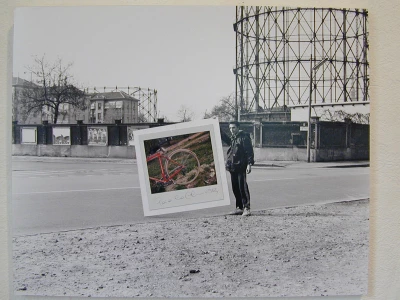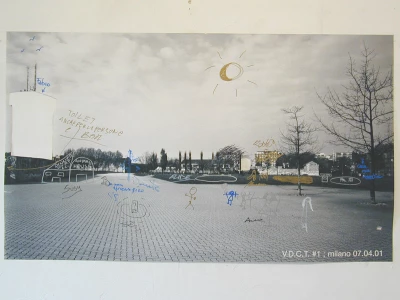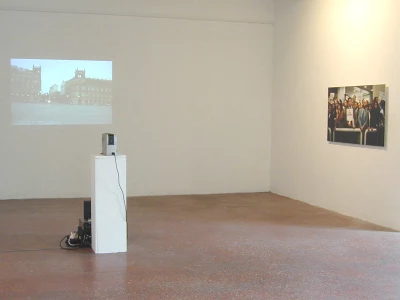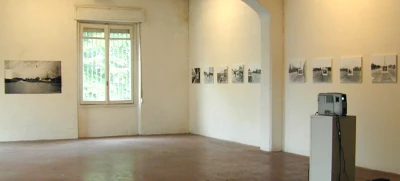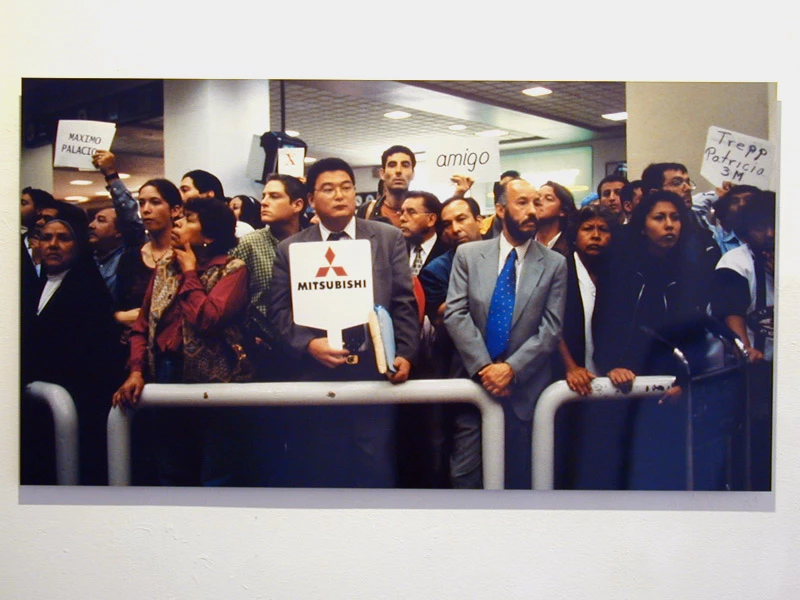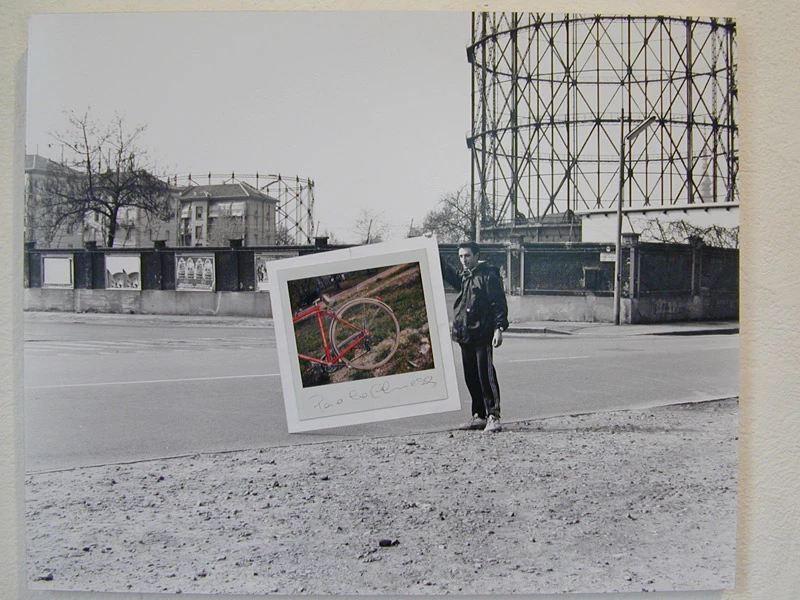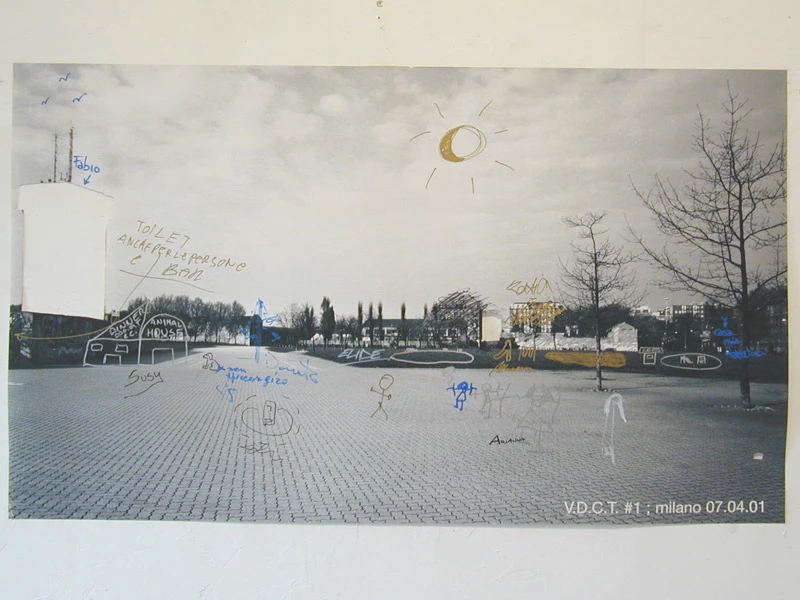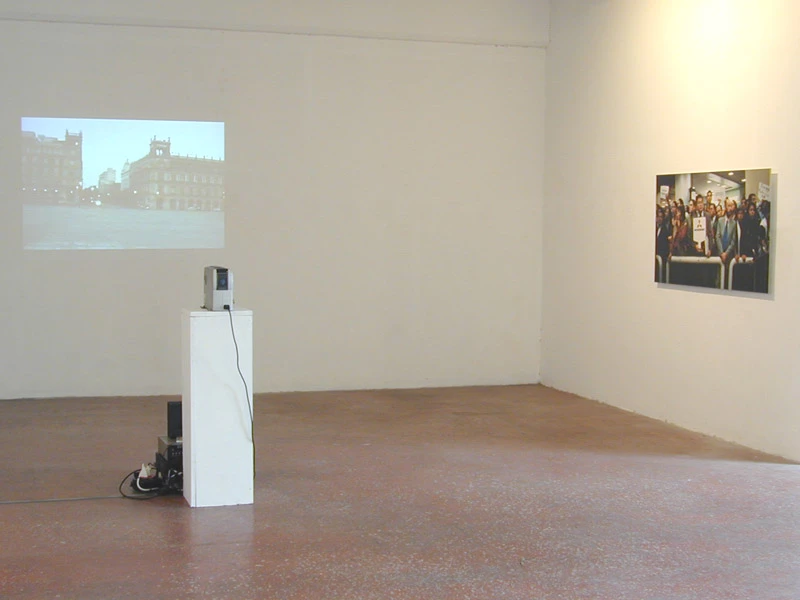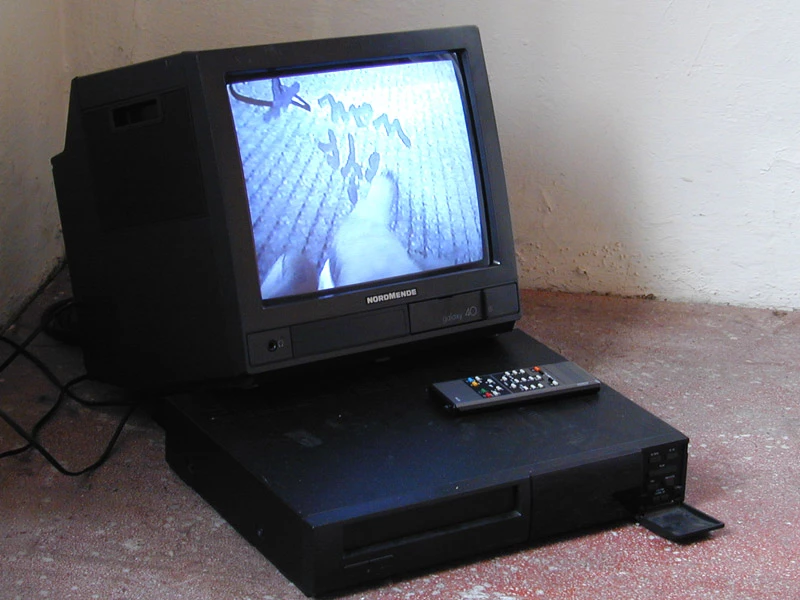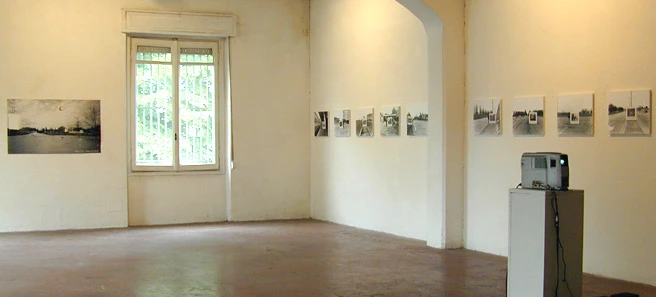Matteo Balduzzi e Marco Poloni • Straderumorincontri
Matteo Balduzzi wanders through anonymous urban outskirts carrying a tripod, two cameras, and a strange white board. As soon as he meets a passerby, he starts chatting with them, then in a friendly manner convinces them to hold the board and be photographed right where they are, among apartment buildings, damaged roads, and warehouses. Finally, he invites them to take a Polaroid picture, choosing in that shapeless landscape whatever pleases them most. The final result is a skewed assemblage of two gazes (that of the photographer and that of the passerby encountered by chance) on a reality already chaotic in itself.
Marco Poloni, on the other hand, has himself filmed by a friend at the most crowded point of the “Arrivals” area in an airport. There, among the waiting crowd, he pops up above the confusion of heads with a conspicuous sign reading “amigo”. But who is the “amigo” he’s waiting for? Is it the person photographing him, or is it all of us, happy to have unexpectedly found a friend in a foreign land, just as the unease of the unknown was beginning to creep inside us? But then, is he a friend to everyone? Then there’s a video, also by Marco Poloni, where a siren-blaring car drives around a magnificent, silent square: where it comes from, where it’s going—with that strange siren, both alien and gentle—remains a mystery to us.
So what are these two young artists trying to pull off with their “odd” ideas? Instead of striving to interpret reality, as all respectable photographers have always done, they double it, scramble it, live it by wandering here and there, recreate it by blending streets, noises, and encounters. Instead of giving meaning to the senselessness that surrounds us, or denouncing alienation and non-places, they put themselves at stake, diving into tragicomic endeavors and unexpected encounters. Having abandoned any claim to see more and better than other humans without a camera, our two authors distrust the defining power of images and use them “in reverse”. They disorient and disturb perception, refrain from directing our gaze, and instead offer us open-ended, paradoxical stories, suspended between reality and imagination, wavering between truth and plausibility. Armed with irony and lightness, they manage to build, in a way that is both clever and quirky, unexpected human relationships where others would have gloomily limited themselves to denouncing their absence. If what they play are games, they are very serious games that concern us closely.
